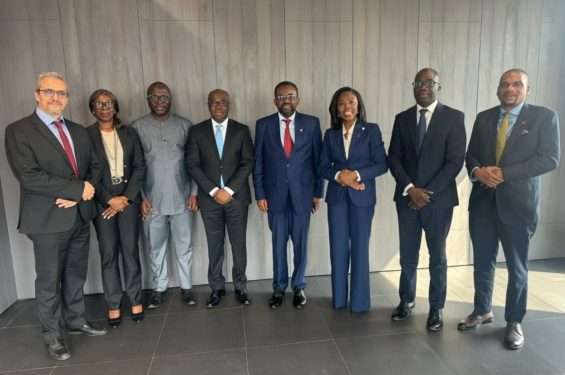The Minister of Finance, Ken Ofori-Atta, has expressed his optimism for indigenous business in taking advantages of opportunities being presented by the entrance of the Africa Continental Free Trade Area (AfCFTA).
Urging businesses to be substantially innovative in their operations, Mr. Ofori-Atta noted this will facilitate them expand beyond the borders of Ghana.
In his keynote address at the opening ceremony of the ninth edition of the Ghana Economic Forum, Mr. Ofori-Atta, iterated government’s commitment to assist Ghanaian enterprises to take advantage of the AfCFTA.
“We in Ghana cannot afford to let this window of opportunity slip. We expect that the private sector facilitated and actively supported by my government will be at the forefront of trying to take advantage of the vast possibilities presented by the AFCFTA. Our goal is to transform Ghana into a regional hub for financial services, petrochemical logistics, manufacturing, fintech, education etc. We are determined to bring prosperity to the people by working closely with private sector.
“It is the private sector that creates the needed job opportunities of the people and country and I am confident the Ghanaian private sector will rise to the challenge. The government on its part will continue to build an enabling environment to provide the private sector with the needed catalyst to profitably grow and remain globally competitive”.
On his part, the head of research at the Bank of Ghana, Philip Abradu Otoo, intimated that, the focus of the bank is to ensure their future regulations factors in warning signals and identification of cyber risks.
“I think what the Central Bank is focused on at this stage is to try and ensure that in the post-COVID-19 era our regulatory purview will include developing early warning signals that anticipate identity theft and mitigate cyber risks. What we have noticed from the Central Bank is that cyber theft cases have risen significantly. The reports that we are getting shows that we are on the rise and I think the banks will attest to this fact. We keep getting the report and I think the focus going forward will be to develop these early warning signals to try and mitigate these pressures that are coming on the digital platform. There is a lot of activities going on the digital platforms and our primary focus is to fight these things at this early stage”.
Speaking on the theme: ‘Resetting the economy beyond COVID-19; Building economic resilience and self-sufficiency’, the Managing Director of Fidelity Bank, Julian Opuni, advocated for improved methods for import substitution.
“I think the imports substitution discussion was really at the top of our agenda in all our engagements especially at the peak of COVID-19. I agree that for the banking sector I think there is a lot more work to be done around the sector focus because the other thing is you have to be careful about not having a broad rush approach towards every single import substitution opportunity.
“We have to look and identify what our key strengths are and what we can actually leverage on are the current opportunities out there. What infrastructure can we put in place to ensure that? Because there is a lot that goes into creating a resilient economy”.





















